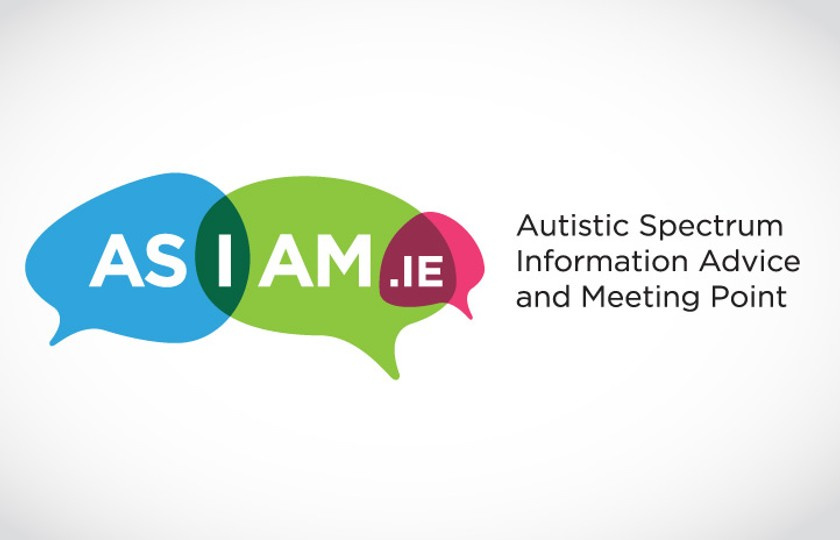
Mary Immaculate College (MIC) academics have teamed up with AsIAm, Ireland’s National Autism charity, to examine the effectiveness of the charity’s Autism-Friendly Schools Programme. The programme, launched in 2019, has involved over 200 primary and post-primary schools from around the country who reflected on their practices, identified challenges and solutions and created whole-school inclusive cultures to build and understanding of autism among the school community. The report into the programme was launched virtually recently by Minister for Special Education and Inclusion, Josepha Madigan TD.
The report, which is informed by research involving participants from Year One of the Autism Friendly Schools Programme, explored the ways in which engagement with the programme may have shaped their understanding and awareness of autism and their attitudes towards inclusive education. Results from surveys and interviews with participants, found the majority of participating schools agreed that the programme supported efforts to improve practice within their schools. It also noted that prioritising the student voice, fostering an inclusive culture within the community and collaboration between student, teacher and parent were among the main focus points for successful implementation of the programme.
Commenting on the publication of the report, Adam Harris, Founder-CEO of AsIAm said: “We are extremely proud of the outcomes of the evaluation of our Autism-Friendly Schools pilot and are particularly pleased at the added value schools have been able to access by hearing directly from autistic people on their educational experiences, sharing and collaboration between schools and engagement across the school community to increase autism understanding and set and measure goals. Inclusion requires everyone within a school community, from students and parents to teachers and ancillary staff, to have the knowledge they need and a voice in creating supportive, environments for everyone. We hope the publication of this report will lead to more schools joining us on the journey in the years ahead and welcome formal recognition from key stakeholders on the value and impact of the programme.”
The research was conducted by academics from MIC’s Faculty of Education who specialise in both primary and post-primary teaching. The research team consisted of Dr Johanna Fitzgerald, Dr Laura Ambrose, Dr Finn Ó Murchú and Elaine O’Keeffe. Speaking on the findings of the report, project lead and Head of the Department of Educational Psychology, Inclusive & Special Education, Dr Fitzgerald said: “We are delighted to celebrate the work of AsIAm and the Autism Friendly Schools Initiative. It is an honour and a privilege for us to collaborate with AsIAm and to be involved in exploring the impact of the Autism Friendly Schools Initiative in schools. The launch of the report today conveys a good news story not only for AsIAm, but for participating school communities. The findings from this research spotlight the important role of the programme in supporting whole school improvement for inclusive education. Significantly, AsIAm has emerged as a leader, alongside other providers of professional learning, in the provision of sustainable and high-quality teacher professional learning in the field of autism.”
Key insights from the research indicate that the Autism Friendly Schools Initiative clearly encourages teachers to reflect and the benefits of the initiative are that such reflection is done in a more collaborative manner, and that such collaborative approaches can be considered essential rather than optional. Prioritisation of the student voice is another key learning moment for many participants, and served as a motivating factor for continual reflection on and refinement of approaches to supporting autistic students. Participants described this as ‘exceptional learning’, or as an experience which ‘really opened their minds to how best to support autistic students’. Findings also indicate how the initiative acted as a catalyst for dialogue. The programme seeks to embed good practice in a sustainable way, by fostering an inclusive culture built on shared learning and a collaborative approach amongst school staff, parents and students. Importantly, findings report on the transferability of learning from the programme to learners with a range of needs. The majority of participants agreed that it supported efforts to improve practice within their schools.
Another key emerging theme from the research is the importance of leadership and understanding how school improvement can take place and be sustained. Such actions should not be underestimated as they instil confidence in practitioners who speak of ‘knowing AsIam are at the end of an email’. Such support adds to teachers’ confidence in engaging with colleagues and in being more authentic and honest in their interactions which in turn support colleagues to continue to make inquiries, reveal their vulnerabilities and seek to find better ways of being a teacher.
Finally, the programme supports teachers to develop confidence to engage more professionally with parents in an understanding and collaborative approach, key factors to promoting effective and meaningful collaboration between parents and teachers, as illustrated by a teacher in one of the participating schools, who said ‘It [the initiative] pulls the parent, teacher, and student voice together’.
Further information about the Autism-Friendly Schools Programme can be found here.



